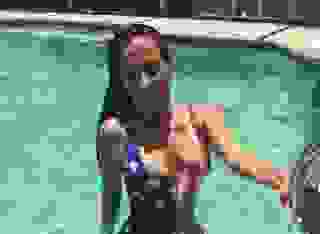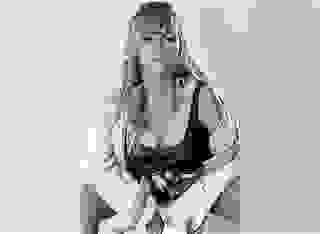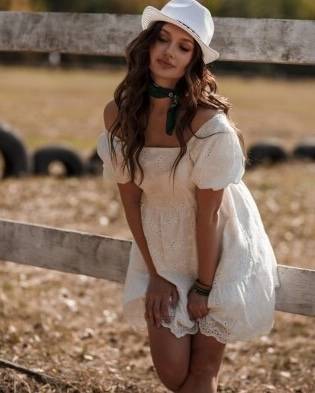- Non-Erotic
- Once Upon a Distant Time
Note: You can change font size, font face, and turn on dark mode by clicking the "A" icon tab in the Story Info Box.
You can temporarily switch back to a Classic Literotica® experience during our ongoing public Beta testing. Please consider leaving feedback on issues you experience or suggest improvements.
Click hereFOR Linda AND FOR Mikey
WITH MY LOVE AND GRATITUDE
I have always felt both the sincerest gratitude and the profoundest regret at having known and loved you both, gratitude for the love that you both called forth from my heart and regret for the way it all turned out for each of us. In the one case I have thought that I had taken life, and in the other I knew I had given it. I thank you both for the privilege of having known and loved you. So, now, my young, sweet, tender one, I bid you good bye. Good bye my son; I give you a hearty embrace.
Last Note to My Son
Long years hence when the tide of time has rolled on, and you are become a man with a son of your own, think on me once in a kindly way and wonder not whether ever I knew that you loved me, for always I knew. Your love was always to me so clear, even when-especially when!- it was not to you so clear. Know that sometimes a Father's love for his son will fail him, for no Father has ever been perfect but One. But if the Father is true, then he will recover, his love shall return and his son shall know it.
Think that my last vision on this Earth was of your face with its bittersweet smile and that my last thought before eternity was of you, dear son. And know that we shall meet again.
Your loving Father
Once upon a distant time in a land faraway that my grandmother Honey used to call the Old South, innocence was lost and true love took its last bow. Look not for the record of it in the annals of human affairs, for you shall not find it. All of the people from that time are dead, and the memory of it lingers now only in the daily thoughts, nightly dreams and constant remembrances of a single old man.
It is necessary now to speak of the past. I am talking about the year 1958 in the small Southern city of Nashville, Tennessee. I am talking about the time of the Grand Ole Opry, of Mother Maybelle Carter and Hank Williams and "Your Cheatin' Heart," about the time of Nick Varallo's barbeque joint out by Highway 100 and the tall colored waiters with their shiny, leather-colored faces in those high, white chef's toques that made them look so much taller, and how they served a barbeque so memorable you can taste the tang and smoke of it in your mouth a half century later, and finally about the teenaged boys and girls who would gather there on Friday and Saturday nights in their gaudy white and sky-blue Belair convertibles to ogle each other and to dream about each other in the fitful way that only teenagers can.
I was ten and in those days time still let me play in the morning time of life when anything seemed possible, and there still clung to life that magic and delight that only children can know.
In the time of which I speak Nashville was still a small city with a good side and a not-so-good side. One of the neighborhoods on the good side was the West End, and running smack dab down the middle of this neighborhood was Richland Avenue. In the center of this avenue were grassplots containing old, large and very tall sycamores that supplied ample shade in the summer and twisted and strange, snow-clad beauty in the winter. These sycamores gave Richland Avenue a genteel aura of an elegance from times gone by.
All of the houses on Richland Avenue were from the era 1870 through 1929. They were mostly of a style known as "craftsman" and built either of grey limestone or liver-colored brick and had, of course, porches on the front. On these porches the mothers and fathers would sit of an evening to watch the children play in the dwindling light. The fathers would sit quietly in the dying twilight with their shirt sleeves rolled half way up, their shirt garters peeking out tenderly from between the folds of their starched white shirts, and they, sipping a glass of iced tea with maybe a slice of lemon or a sprig of green mint, would laugh that hearty laugh in the way of all fathers, a laugh unforgettable, seeming sometimes wistful and poignant, and at other times deep, masculine and magical, being a laugh that could comfort the ache in a little boy's heart, or soothe the fear and doubt in the breast of a small girl. In the fading light the mothers, still wearing their damp aprons and sitting anxiously watching the children, would call, "Not too far, children."
Then the street lights would come on, and the bugs would swarm to the lights—all kinds of bugs serenading the night and burning brownly in the electrified, soft yellow glow of the streetlamps. You could listen to the crazy song of the cicada or to the soft, regular heartbeat of the crickets, with the many lightning bugs winking softly orange or green. And always the children would play hide-and-go-seek until their parents would call them in.
Some of these craftsman-style houses had sycamores in their yards, and sometimes I in dreams in the deep watches of the night see them still, even though it's been sixty years and more. Through their spreading crowns I see the dappled light of the morning sun filtered to a pale, gauzy yellow; or in the thick moonshine of night I smell their damp, virid leaves spanking smartly in the violent winds of evening storm; or I feel their scabrid bark gently biting into my arms and don't know why I see them still.
But when I have these dreams of the sycamores, I always wake up with the clinging bedclothes wet, and I'm trying to get away. I'm pushing the covers off, and I'm backing up against the headboard and waving my arms in helpless circles. My head is turned away, my neck stiff, my mouth turned all out in a grimace. And I'm crying to beat the band. I try to stop crying—I really do—but I just can't stop. And I don't know why I have these dreams of the sycamores.
***
Now I am talking about an evening in the summer of 1958, one evening in particular from amongst all the evenings that crowd now back into my memory from that long ago time of my childhood. It is early twilight of a damp, warm August evening--a Saturday, wasn't it? You and I are living on Richland Avenue, not far apart, you in your brick, craftsman-style house at 3529 Richland Avenue with its front screened-in porch and I down the street a little in the old Richland Apartments. We are both ten and fourth graders at John B. Ransom Elementary School.
On this evening we are playing badminton in your backyard, and the mild physical activity has pinked your soft cheeks. You are wearing a blue cotton dress and black patent leather shoes and white socks, a pair of soft scarlet ribbons streaming through your hair the color of lambent honey and gold, your sweet smile revealing a blizzard of perfectly shaped teeth, regular and pearlescent, that dazzle my young boy's eyes even in the soft moonlight.
I remember your eyes, like sherry, sparkling against the light of the kerosene lanterns under a sky of early stars. The heavy orange moon bent down and filled the trees with light, as the deep iron notes of vesper bells from a cathedral in the far-off dark struck off the hours and tolled the faithful to their prayers—a kind of music by moonlight swelling up into the trees and then rising up, up into the sweet air of night like a thrum of circling birds. In sum, it was the landscape of love. Such, such are the fragile, vivid memories burned into the skull.
But, then, with a sudden swoosh of your racquet you smacked the shuttlecock over the net, and before I could hit it back, you asked, "When are you going to kiss me? At lunch the other day in the cafeteria at school, you said you would kiss me. You said the code words 'skip it'. You know what those words mean. They mean you want to kiss the girl you're saying them to. So-o-o-o-o? When are you going to do it?"
"Oh, tha-a-a-t!" I replied in a high, thin voice. "I-I-I was just horsin' around. You know. I don't want you to think..."
"Mike? You never just 'horse around,' as you put it. You and I both know you're more serious and intelligent than the average fourth grader. Those are two of the reasons I like you. The third reason? Well, I think you're handsome—as boys go. So? When are you?"
"Um-m-m. Well-l-l-l-l...," I said, gathering my slim, young boy's courage. "How about...right now?"
"O.K. Where?" you asked.
I hesitated a beat. "Right behind that tree over there."
"You mean the big sycamore behind my garage?"
"Yeah. I think that's a good place for a kiss."
"Do you think we'll get caught? My Mom's right there. I can see her through the kitchen window. She could see us. Or she could see we're not where we're supposed to be."
"I don't know whether we'll get caught," I said plaintively. "How should I know? If you don't want to, it's really, really O.K. with me. Trust me...when I say...it's O.K. If you don't want to, that is."
"No. I want to. Let's go. Let's go right now!"
So, we went over to the big sycamore behind your garage, first you and then—when nothing happened, when your Mom, for instance, didn't run roaring out of the kitchen with a meat clever in her hand yelling "You fiend!" like I just knew she was going to - then finally me.
And you know. I really didn't know anything about how to kiss a girl, especially you about whom I cared a lot. We were only ten. What could either of us know? But my Mother had recently taken me to see Gone with the Wind with Clark Gable and Vivien Leigh. Only in an effort to allow me to acquire a little culture, she had taken me to see the French version. I'll never forget the title, Autant en Emporte le Vent, So Much the Wind Carries Away.
I remember thinking how much more important it sounded in French. In the movie I had seen how Rhett Butler had taken Scarlett O'Hara in his arms. He had bent her back over one bare, strong arm and had given Scarlett one of the longest and deepest kisses I have to this day ever seen. At least that is the way I remember it. Well, if you will remember, that is exactly what I did with you.
I remember how your lips were soft against mine. And how it was the first time for me and how I thought it must be your first time, too. I remember how warm your body was next to mine, warm and soft and alive like a living animal; the scent of your hair—somehow earthy and not like the hair of a little girl at all, somehow the smell of a woman's hair, an older smell, yet I can't tell you what it was—and the smell of the Chanel you were wearing that night, probably from your Mama's chifforobe, and the peculiar sense of excitement like an electric current that ran through my body. I could not understand that ache of excitement and did not understand why my whole body felt like an electric wire plugged into an outlet-until years later.
Of course, I did not connect kissing with anything else. All that other stuff was way beyond my ken. But when it was over and I had finally pulled you upright, I knew I sure wanted to do it again.
Yes! Oh-h-h, yes. Again. Again, yes! Oh-h-h! You smiled a big beautiful smile and said, "Michael Haynes, I'll love you 'til the day I—." But just then we heard the click of the china and the jangle of the silver as your Mother set the dining table. We heard your Mother's voice call, "Lind—a-a! Mi-i-ke? Dinnertime!" And that was that. We wanted to kiss again. But...we never did. Never again down the long halls of eternity, nor ever again in the fulminating carcinoma of time did we ever.
It could have been so different. You had looked at me the way every boy wants a girl to look at him. Just before I kissed you, I had hesitated an instant, and in that instant it seemed the Earth had trembled. I had held that instant and had imagined an entire world. In my mind I realized that we would forever be together, spend our youth together, raise a family together, grow old together and, finally, die together.
I had known this as certainly as I had known that I held you in my arms. I had known something was about to happen, something life-changing, something epic. What I had not known, what I could not have guessed, was that this kiss between you and me, a ten-year-old girl and boy, in the twilight of this warm, humid August evening in the small Southern city of Nashville, Tennessee, in the year 1958 behind your garage under the spreading boughs of a sycamore tree was to be the best moment of my life, that you were to be the most cherished and the most beautiful girl I would ever hold in my arms, and that there was never to be a greater thrill nor a moment of more intense purity. After the first kiss...there is...no...other.
***
The next Thursday at school as we were lining up to go home, you came to me and got in front of me, thinking I would let you into the line. But I reacted angrily, pushing you out of line. You looked at me with such an expression of genuine hurt on your face. To this day I can see you still in picture perfect clarity: The grey wool skirt with the little pink elephant you were wearing, the loose-fitting teal blouse, the furrowed muscles of your forehead, the brows drawn together and your mouth and lips pink, alive and beautiful even in sadness and worry. But I...I did not yield, and I did not apologize.
The next day on Friday as we sat in class up on the backs of our old-fashioned wooden desks you often looked over at me and smiled, as if to ask whether all was forgiven. I did not smile back. I continued to be indifferent to you. But at the end of the day, you smiled one last time, longingly, at me, and I...I smiled back. All was forgiven. All was back to normal between us.
But...was it? Well, time knew better than we. When I came back from the weekend and went to class on Monday, the principal, Mrs Lucille Maddox, came to our classroom in the afternoon.
"Class," she said, "I have something to tell you that is difficult for me to say and even more difficult for you to hear."
Then she looked directly at me and with the sound of breaking glass in her voice said, "Mike, you're excused. Your mother is waiting for you outside the classroom."
I had left class not knowing what to think. What had I done?
"What's going on, Mom? Why did the principal come in and dismiss me from class? Mom, you know that Linda was not in class today. I wonder why she didn't come to class?"
"Son, we're going over to her house right now."
"Why?" I asked.
"Because, son, last night... Linda...died."
I remember being just bewildered. I remember putting one foot in front of the other without any thought as to why, my feet padding slowly over the brown, orange and yellow linoleum tiles ancient even in those long ago days. No thought went through my head. No light struck my eyes. No feeling came to my feet. This is the only time in my life when I have been simply staggered.
"You're pulling my leg, Mom. C'mon. Don't say things like that. For me it's way too scary."
"I'm not kidding, son. She died of septicemia."
"What?!" I exclaimed.
"Son, do you remember telling me that Linda had once pulled up her blouse and shown you her scar from where the surgeon had removed her spleen and gall bladder? Well, son, she died because she had no spleen. Her body could not fight an infection she had gotten."
When we got to your house, people were there. Mrs Helen Garfinkel, our third grade teacher, dressed in an electric orange dress, sat on your piano bench. She looked, sadly, like a very old man in drag. The rouge, thick and theatrical, the lipstick uneven and smudged, all made her look like a very old man trying to look like a very young woman. She stared straight ahead out your front window, her knees locked together, her body erect, her back stiff as steel, her eyes unblinking, the face like a stone, like a monument to all the sadness on the earth, as down her cheeks rolled her emotions slow as salt.
Your grandparents, Mr and Mrs George Washington Herndon. And then, finally, a thought. I was reminded of your heritage. Yes, that George Washington. Direct line you had told me. Your grandfather slumped in his Queen Ann wing back by the fireplace, he using the now damp, white linen antimacassar from one of the arms of his chair as a handkerchief.
Other people I didn't know. Everybody looked sad. Shocked. Just like me. Everyone just kind of looked around. Stupefied. How could this have happened? How could the most beautiful girl in the class, in the school, in the entire city of Nashville have died? No one said a word.
The bad part was I had not had a chance to say good bye. To say I was sorry for the way in which I had behaved. You were gone. I would never see you again. I asked my Mom whether I could go to your funeral. She took one glance at the look in my eyes and said, "No." So I couldn't even go to see you one last time.
As time goes by, I see you now less and less. But sometimes still with embers low and when the moon is full, bright and blue and tattered clouds race before it, and done are my evening's lucubrations, I by lamplight close my eyes and see before me once again as in days of old the rosy glow of your cheeks in childhood. The dazzle of your smile still I dimly see, the sparkle of your eye still not lost to me.
Yet have I gone to bed so many, many nights wishing—praying!—that I could do things over again. And you have come to me on many of those nights to comfort me, whispering in your soothing, your small, tiptoe voice how O.K. it is that things are the way they are.
I keep thinking about that movie Autant en Emporte le Vent, So Much the Wind Carries Away, and about how ours is a way of life that was destroyed and cannot- Oh, cannot!—No, not ever!--be regained. It is simply gone with the wind.
I have tried to tell about this time and how Nashville was and who some of the people were and what they did-and did not do. I have tried to tell what the heart knows without ever having told a word; I have tried to tell another human heart what is important and what is not: That the only things in life are love-and death-which is only the ceasing of love.
We are all from Nashville--whether we know it, or not. We are all a part of its history, its beauty, its sorrows, its sadness and its loss. We all share in its fate and in the fate of the human heart.
I believe there is a line of connection between all of us and this little girl, this little boy, a line as straight as an arrow, an arrow shot true from the bow of their hearts to our hearts, a shot that hits dead center in all of us who read and think and feel, and finally who believe that the heart has its story to tell.
We shall all tell our stories, too, before it is our time.
L'envoi
Sometimes at night I see
Your smiling face through my tears;
And all the dreams of all the years
Fall to pieces for all eternity.
Life is hard. We are each of us players in a three-act Greek tragedy. Each of us already knows the way things will turn out for him. The end is always the same: In between birth and death there may be ups and downs, small battles won or lost, but the end is always defeat.
Man chiefly distinguishes himself by how he chooses to live his life, by how he chooses to spend the time allotted to him by God. What values does he choose to honor? How does he treat his fellows? It is in answering these two questions that man ultimately ennobles himself.
Frères humains qui après nous vivez,
N'ayez les cuers contre nous endurcis,
Car, se pitie de nous povres avez,
Dieu en aura plus tost de vous mercis.
Francois Villon
Ballade des Pendus
- COMMENTS








